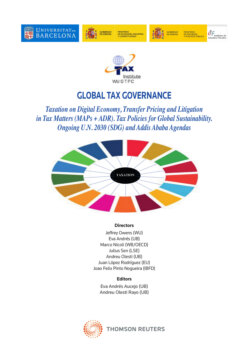Читать книгу Global Tax Governance. Taxation on Digital Economy, Transfer Pricing and Litigation in Tax Matters (MAPs + ADR) Policies for Global Sustainability. Ongoing U.N. 2030 (SDG) and Addis Ababa Agendas - Jeffrey Owens - Страница 11
На сайте Литреса книга снята с продажи.
3. WHAT CRITERIA SHOULD COMMENTATORS USE TO JUDGE ANY OUTCOME?
ОглавлениеListening to the debate over the last 6 months I sometimes get the impression that the only criteria to evaluate the outcome is whether there is a global consensus: consensus at any price!
A global consensus is desirable but the EU must also reflect now on what criteria it should use to judge the substance of any agreement.
Here are five suggestions:
1. Do we have a “real” consensus with all the major players not just signing onto the outcome but with a strong commitment to sign on to the resultant treaty and implement it in a consistent, predicable and fair manner? And do all countries have the capacity to do this? Will the pressure to get a global consensus lead to outcomes which paper over disagreements?
2. What are the generally accepted tax principles that underlie the agreement, particularly under Pillar 1? This is important since it can guide the courts when they have to resolve cross border disputes and also agreement on principles makes it easier to apply or even adapt the rules as new forms of business models emerge.
3. What is the impact on the competitiveness of EU MNEs (and SMEs, a group often forgotten in this debate) vis-a-vis those of third countries. And here countries should ask not just what is the short run impact but how will these rules apply as EU economies transform over the next decade (will they for example help Europe develop its own digital champions and take forward its ambitious digital agenda?
4. Is the resulting reallocation of corporate tax revenues PERCEIVED as being fair, including by the wider citizenry? How do they compare to the yield from DST, over time? Are there ways to achieve this fairness by means of redesigning the VAT which is less distorting than the CIT?
5. Are effective mechanisms in place to resolve the tsunami of cross border tax disputes that can be expected during the transitional period (3-5 years) before the new system beds down? What sort of dispute resolution system is achievable globally, given the hesitance of developing countries towards arbitration? Here there are lessons to be learnt from the EU Arbitration Directive.
I suggest that all of these conditions must be met if we are to have a durable set of global rules that will not be challenged over the coming decades and if countries are to be persuaded to avoid unilateral measures. The EU has a special opportunity to show leadership here and to help shape the rules for decades to come in ways which enhance international tax cooperation.
